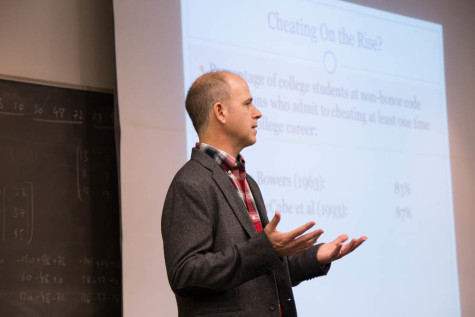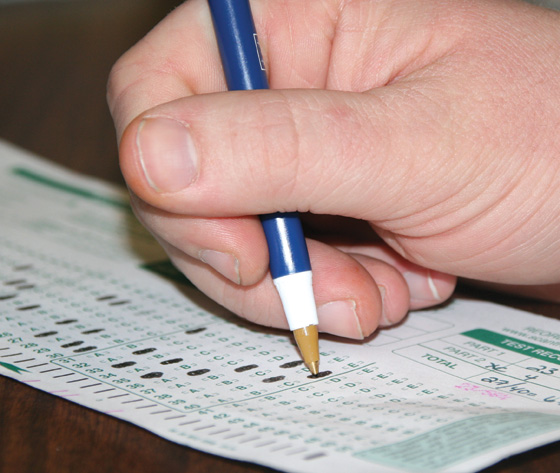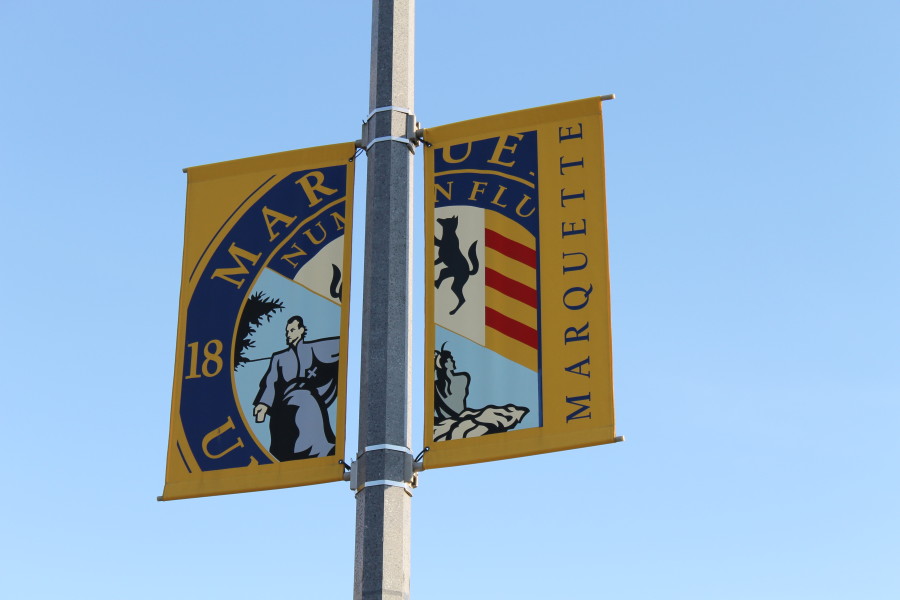
James Lang, an associate English professor at Assumption College in Massachusetts, uncovered the prevalence of cheating in college and reasons behind it during a Tuesday event.
Lang also focused on the role student leaders have in reducing cheating. The Center for Teaching and Learning and the Academic Integrity Council hosted his discussion as a follow-up to Marquette Student Government’s required academic integrity tutorial for all students, which began last year. The tutorial is part of the university’s new honor code.
“We are working to raise awareness about what cheating is so students don’t get penalized for not knowing,” said Lauren McCain, a junior in the College of Arts & Sciences and member of the Academic Integrity Council.
Lang first addressed society’s false perception that higher education cheating is increasing due to technology. He mentioned a study done from 2002-2010 by Donald McCabe of Rutgers University and a research team. It found that the one-time cheating rate among American college students is somewhere between 60-70 percent. That shows an approximate 20 percent decrease from similar stats found in 1963.
He discussed the results of surveys done from 1963 to 2010 – they reveal an approximate 20 percent decrease in student cheating. The most recent of the surveys shows that 65 percent of students admitted to cheating once.
“That’s why most colleges are doing what they’re doing here at Marquette,” Lang said, referring to the university’s honor code and Academic Integrity Council. “It is a very large and persistent problem within higher education.”
Lang described the four main reasons for student cheating: extrinsic motivation, orientation toward performance, infrequent high stakes assessments and low self-efficacy.
Extrinsic motivation is a narrow interest in the class’ end grade, rather than its material. Performance orientation is the satisfaction of doing well in the class instead of gaining knowledge. High stake assessments are limited tests that are heavily weighted and have a big impact on the overall grade. Low self-efficacy is the lack of confidence in mastering the class’ material.
Lang often discusses those cheating motivations with college faculty as a way to encourage learning and prevent cheating.
“The best defense against academic integrity is excellence of teaching,” he said.
He opened the discussion to the five audience members – four students and a staff member. Each individual agreed with at least one of the four primary cheating motivations Lang presented.
“I find the younger students are more likely to cheat, but it is probably because they’re just starting college and are in introductory classes, and they’re in a new environment,” Philosophy Professor Shaun Miller said.
Miller has taught introductory-level philosophy classes at Marquette since 2011 and identifies cheating as a prevalent problem on campus.
He said, in his experience, cheating has slightly decreased and he attributes the change to the Academic Integrity Council.
An instructor or professor who finds evidence of academic dishonesty must fill out an Academic Misconduct Report form and submit it to the council for review and further action.
Lang encouraged students to individually promote academic integrity to the campus community.
“How can students themselves get involved in supporting academic integrity?” Lang said. “It really will not work unless the students are actively engaged.”




